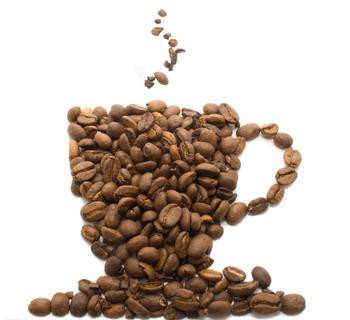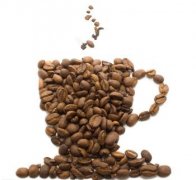The main ingredients of coffee basic knowledge of fine coffee beans

Caffeine: it has a particularly strong bitter taste and stimulates the central nervous system, heart and respiratory system. Appropriate amount of caffeine can also reduce muscle fatigue and promote digestive juice secretion. Because it promotes kidney function, it is diuretic and helps the body to expel excess sodium ions from the body. But eating too much can lead to caffeine poisoning.
Tannic acid: the boiled tannic acid will decompose into pyrouric acid, so the coffee that has been brewed for too long will taste worse.
Fat: the most important ones are acid fat and volatile fat. Acidic fat: that is, fat contains acid, its strength will vary according to the type of coffee. Volatile fat: is the main source of coffee aroma, it is a kind of aroma will emit about 40 kinds of aromatic substances.
Protein: the main source of calories, the proportion is not high. Most of the protein in coffee powder will not dissolve out when brewing coffee, so the intake is limited.
Sugar: coffee beans contain about 8% sugar. After baking, most of the sugars are converted to caramel, which browns the coffee and combines with tannins to produce sweetness.
Fiber: the fiber of raw beans will be carbonized after baking and combine with caramel to form the hue of coffee.
Minerals: contains a small amount of lime, iron, phosphorus, sodium carbonate and so on.
Content of nutrients in every 100 grams of coffee extract
99.5 grams of moisture
0.2 grams of protein
0.1 grams of fat
Ash 0.1 grams
Trace sugars
Calcium 3 mg
Phosphorus 4 mg
Sodium 2 mg
Vitamin B2 0.01 mg
0.3 mg nicotinic acid.
Important Notice :
前街咖啡 FrontStreet Coffee has moved to new addredd:
FrontStreet Coffee Address: 315,Donghua East Road,GuangZhou
Tel:020 38364473
- Prev

Treatment of Coffee Fruit and Coffee beans
When the coffee fruit is harvested from the mountain, the next step is to remove the peel and pulp of the coffee beans. There are two main ways of treatment: washing and solarization. But the ultimate determining factor is whether there is enough water to use. Some special boutique coffees are both insolated and washed. Washing requires the use of special machinery and equipment and adequate water sources.
- Next

Drinking coffee can reduce the risk of type 2 diabetes
A study by the George School of International Health (George Institute for International Health) at the University of Sydney in Australia found that coffee intake, whether regular or decaffeinated, can help reduce the risk of developing type 2 diabetes, and people who drink an extra cup of coffee a day are 7 per cent less likely to develop diabetes. Compared with coffee drinkers who drink less than 2 cups of coffee a day
Related
- Beginners will see the "Coffee pull flower" guide!
- What is the difference between ice blog purified milk and ordinary milk coffee?
- Why is the Philippines the largest producer of crops in Liberia?
- For coffee extraction, should the fine powder be retained?
- How does extracted espresso fill pressed powder? How much strength does it take to press the powder?
- How to make jasmine cold extract coffee? Is the jasmine + latte good?
- Will this little toy really make the coffee taste better? How does Lily Drip affect coffee extraction?
- Will the action of slapping the filter cup also affect coffee extraction?
- What's the difference between powder-to-water ratio and powder-to-liquid ratio?
- What is the Ethiopian local species? What does it have to do with Heirloom native species?

